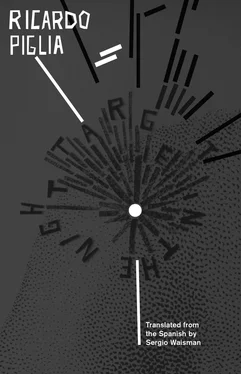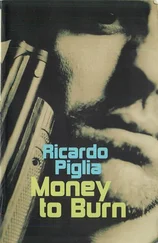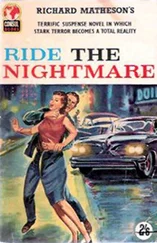Ricardo Piglia - Target in the Night
Здесь есть возможность читать онлайн «Ricardo Piglia - Target in the Night» весь текст электронной книги совершенно бесплатно (целиком полную версию без сокращений). В некоторых случаях можно слушать аудио, скачать через торрент в формате fb2 и присутствует краткое содержание. Год выпуска: 2015, Издательство: Deep Vellum, Жанр: Современная проза, на английском языке. Описание произведения, (предисловие) а так же отзывы посетителей доступны на портале библиотеки ЛибКат.
- Название:Target in the Night
- Автор:
- Издательство:Deep Vellum
- Жанр:
- Год:2015
- ISBN:нет данных
- Рейтинг книги:3 / 5. Голосов: 1
-
Избранное:Добавить в избранное
- Отзывы:
-
Ваша оценка:
- 60
- 1
- 2
- 3
- 4
- 5
Target in the Night: краткое содержание, описание и аннотация
Предлагаем к чтению аннотацию, описание, краткое содержание или предисловие (зависит от того, что написал сам автор книги «Target in the Night»). Если вы не нашли необходимую информацию о книге — напишите в комментариях, мы постараемся отыскать её.
is an intense and tragic family history reminiscent of
, in which the madness of the detective is integral to solving crimes.
, a masterpiece, won every major literary prize in the Spanish language in 2011.
Ricardo Piglia
Target in the Night — читать онлайн бесплатно полную книгу (весь текст) целиком
Ниже представлен текст книги, разбитый по страницам. Система сохранения места последней прочитанной страницы, позволяет с удобством читать онлайн бесплатно книгу «Target in the Night», без необходимости каждый раз заново искать на чём Вы остановились. Поставьте закладку, и сможете в любой момент перейти на страницу, на которой закончили чтение.
Интервал:
Закладка:
Renzi walked in late and had to nudge his way into the room. When he finally settled in at a wooden bench near Bravo, his eyes met Luca’s. The Industrialist smiled at him calmly, as if he wanted to transmit his confidence to the few people there to support him. Renzi looked only at him the whole afternoon, because he thought that Luca needed to be supported by the presence of an outsider who truly believed in his words. In the course of the next two or three hours — Renzi didn’t know exactly how long he spent in the courtroom, although there was a clock hanging on the wall that rang every half hour, and it rang several times — Luca looked at Renzi every time he was in a difficult position, or when he’d made a good point in his arguments. As if Renzi were the only one who understood him precisely because he wasn’t from there.
The justice of the peace, of course, had already taken sides before the so-called reconciliation hearing started, as had most of the people there. Those who speak about reconciliation and dialogue are always the ones already holding the pan by the handle with the whole affair cooked up. That’s the truth. Renzi realized right away that there was an air of anticipated victory, and that Luca — with his clear eyes and the slow, calculated movements of someone who feels violence all around him — was lost before he began. The judge pointed at and ceded the floor to him. Luca wavered for a moment before speaking, as if hesitating, as if he couldn’t find the words to start. Finally he got up, stretched out his close-to-two-meter frame, and stood sideways to the court, looking directly at Cueto — because it was to Cueto to whom he was really speaking.
Luca looked like someone with a skin condition suddenly exposed to the sun. After so many months of living in the factory, the large courtroom, with all the people, gave him a kind of vertigo. Returning to town and appearing there, in front of everyone he hated and held responsible for his ruin, was the first affront he suffered that afternoon. He felt and looked like a fish out of water. Luca raised his hand to ask for silence, even though not even a fly was stirring. Cueto leaned toward Saldías, smiling and relaxed, and said something in a low voice, and the other smiled back. “Good, okay, friends,” Luca said, as if beginning a sermon. “We have come to ask for what is ours.” He didn’t speak directly about the money under dispute, but rather about the certainty that the gathering that day was a necessary procedure — an uncomfortable procedure, if one were to judge by his mistrustful attitude — for the factory to remain in the hands of those who’d built it. The money — which Luca didn’t talk about, and which belonged to his family, and which his father had decided to cede to him as an advance on his inheritance from his mother — was destined solely to pay off the mortgage that weighed upon his life like the sword of Damocles. They’d been threatened and attacked, they’d been surprised in their previous goodwill by the intruders who’d infiltrated and eventually taken over the company. But they’d resisted, which is why they were there that afternoon. He didn’t talk about his rights, he didn’t talk about what was at stake, he talked only about what he cared about: his insane project to continue by himself in the factory, building what he called his works, his inventions, and his illusion that they might leave him—“that they might leave us”—alone. He paused and there was a murmur, but it wasn’t clear if it was a murmur of approval or condemnation. Luca remained standing for a moment in front of the room, looking back and forth from his sisters to Cueto and Renzi, the only ones who seemed to understand what was happening. Luca spoke without raising his voice, with confidence and self-assuredness, without ever realizing the trap he was falling into. It was a catastrophic error — he rushed toward his own end without a thought, without seeing anything, blinded by his pride and his credulity. You could tell he was only chasing a dream, that he was chasing one dream after another, never knowing where the adventure would end, always certain it was the only thing he could do: defend his dream, which everyone thought was impossible. He said something along these lines, Luca did, as a conclusion. The Honorable Gainza — a cunning old judge who spent his nights playing dice in the clandestine casino near the coast — smiled at Luca condescendingly, and gave the last word to the Prosecutor.
Luca sat down and remained motionless for the next phase of the hearing, almost as if he weren’t there. He may even have closed his eyes — only the back of his head, upper back, and shoulders could be seen as he sat in the front row facing the judge now — and he was so still that, for a while at least, he seemed to be asleep.
There was silence, and then another murmur, and Cueto stood up, always smiling, with an expression of superiority and indifference on his face. He was tall, his skin looked splotchy, and he had a strange air about him, perhaps because his posture was at once arrogant and obsequious. Immediately he focused the attention of the matter on Durán’s murder. In order for the money to be reclaimed, the other case, the criminal proceedings, had to be settled. It was known that the murderer was Yoshio Dazai, it had been a classic crime of passion. Yoshio hadn’t confessed because when the crime is this obvious the murderer never confesses. They hadn’t found the murder weapon because the knife used to kill Durán was run-of-the-mill and could be found in almost any kitchen in the area. All the witnesses confirmed that they’d seen Yoshio enter the room at the time of the crime. Of course Yoshio knew about the existence of the money and had taken the bag to the storage room in the basement hoping to go back for it when everything calmed down. Cueto stopped and looked around. He had managed to change the topic of the session and refocus everyone’s attention by reminding them of the sordid story of the crime. The version of the events, as presented by Croce, was delirious and could be seen as evidence of the ex-Inspector’s dementia. That a jockey would dress up as a Japanese night porter and kill an unknown man to buy a horse was ridiculous. Everyone understood that Croce’s version was impossible. Even more ridiculous was the idea that a man would kill another man that he didn’t know, and that he would take only the money he supposedly needed to buy a horse, and that he would take the trouble to leave the rest of the money in the hotel storage room in the basement, instead of just leaving it in the same room where he’d committed the crime.
“The letter and the suicide might be true,” the prosecutor concluded. “But we’ve gotten used to reading letters of that kind thanks to the letters that Croce has been writing us in his nighttime deliriums.”
Cueto shifted the question at hand and articulated the actual dilemma with extreme judicial clarity. If Luca, in his role as plaintiff, would accept that Yoshio Dazai had killed Durán, the criminal proceedings could move forward, the murder case could be closed, and the money could be returned to its legitimate owner, Mister Belladona. If Luca didn’t sign on to this agreement and continued instead with his own suit, then the criminal case would remain open and the money would remain confiscated for years, since they would be unable to close the criminal case and the evidence couldn’t be removed from the court’s power while it remained open. It was perfect. Luca’s claim sealed the murder case because it presupposed that Durán had come to Argentina to bring him the money.
It took Luca a minute to understand. When he did, he looked stunned. He lowered his head and sat like that for a moment while the silence spread through the courtroom like a shadow. He’d thought that everything was going to be simple, but he realized that he’d fallen into a trap. He seemed crushed. Whatever decision he made, he was crushed. If he wanted to get the money, he’d have to help send an innocent man to jail, but if he told the truth, he’d lose the factory. He turned around and looked at his sisters, as if they were the only ones who could help him. Then, as if lost, he looked at Renzi — but Renzi looked away, because he thought that he wouldn’t have wanted to be in his place and that if he were in his place he wouldn’t have accepted the deal, he wouldn’t have agreed to lie and send an innocent man to jail for the rest of his life. But Renzi wasn’t him. Never had he seen anyone look as pale, never had he seen anyone take as long to speak, to say just one word: Okay. Once again a murmur ran through the room, but this one was different, as of confirmation or revenge. Luca’s left eye was twitching slightly and he fidgeted with his necktie as if it were the rope from which he was about to hang. But Yoshio was the one about to be condemned for a crime he hadn’t committed.
Читать дальшеИнтервал:
Закладка:
Похожие книги на «Target in the Night»
Представляем Вашему вниманию похожие книги на «Target in the Night» списком для выбора. Мы отобрали схожую по названию и смыслу литературу в надежде предоставить читателям больше вариантов отыскать новые, интересные, ещё непрочитанные произведения.
Обсуждение, отзывы о книге «Target in the Night» и просто собственные мнения читателей. Оставьте ваши комментарии, напишите, что Вы думаете о произведении, его смысле или главных героях. Укажите что конкретно понравилось, а что нет, и почему Вы так считаете.












